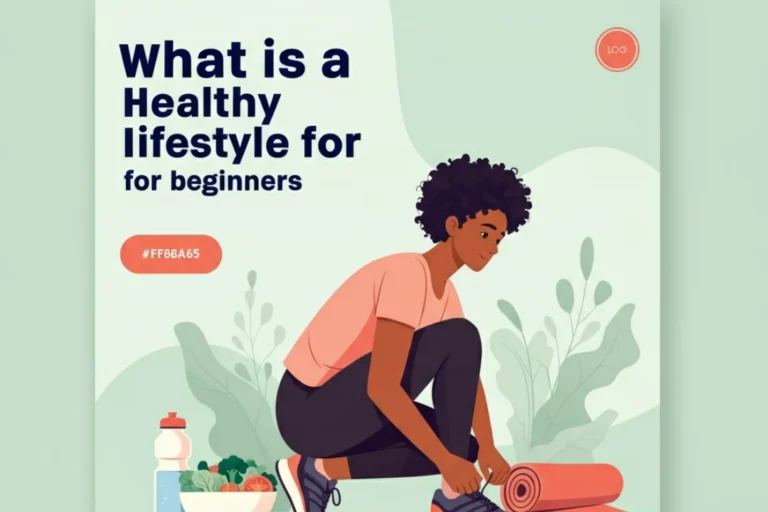If you’re new to healthy living, you might be feeling a mix of excitement and uncertainty. The good news is developing a healthy lifestyle doesn’t mean you have to overhaul everything at once. Small steps lead to lasting changes, and you don’t need to chase perfection. Let’s go through practical habits and choices that make up a healthy lifestyle for beginners.
Cultivating the Right Mindset
Your attitude can be the difference between giving up and sticking with your new routine. Start with self-compassion. Slip-ups will happen, but don’t let them define your journey. Focus on making progress at your own pace.
Celebrate Small Victories
Did you drink extra water today or skip the elevator for the stairs? Pat yourself on the back. Recognizing these little wins helps you stay encouraged and makes healthy living feel doable.
Be Patient with Yourself
No one gets everything right on day one. If you miss a workout or eat fast food, brush it off and move forward. Every day is a fresh start, and over time, your consistency will pay off.
Simple Nutrition for a Healthy Start
Whole foods are your best friends when you’re building healthy eating habits. Don’t stress about a complicated meal plan. Focus on adding more fruits, veggies, and whole grains to your plate, and try to cut back on ultra-processed snacks.
Focus on Whole Foods
Aim to eat foods with fewer ingredients and that look closer to how they’re found in nature. Apples, eggs, oats, and beans are great staples. You’ll find your energy improving and your cravings dropping off as you fuel your body well.
The 80/20 Rule
Strict diets rarely last, but balance does. If you eat nutritious food most of the time, there’s no need to worry about enjoying the occasional treat. This approach keeps you from feeling deprived and helps you stick with positive changes long-term.
Integrating Movement into Your Day
Exercise can sound intimidating, but you don’t have to spend hours at the gym. Find ways to move that actually make you happy and fit your routine. Even short bursts of activity can add up.
- Daily walks: A 20-minute stroll after dinner can help digestion and clear your mind.
- Simple stretches: Five minutes in the morning can wake up tight muscles.
- Bodyweight moves: Exercises like squats or push-ups are easy to squeeze in, no fancy gear required.
- Fun activities: Dancing in your living room, biking with friends, or trying a yoga video all count!
Prioritizing Sleep and Stress Management
Being well-rested is a game changer. Most adults need 7-9 hours of sleep a night to feel their best. Managing stress is just as vital—too much can sabotage your healthy habits.
Improve Your Sleep Hygiene
Set a regular bedtime, power down screens as sleep approaches, and create a relaxing nighttime routine. Even dimming the lights an hour before bed can signal your brain that it’s time to rest.
Building and Tracking Healthy Habits
Lasting change comes from repeating good choices until they’re second nature. If you like structure, keep a journal or use an app to see your progress. This helps you spot patterns and stay motivated.
- One change at a time: Start with drinking more water or prepping simple lunches for work.
- Use notes or reminders: Sticky notes on the fridge or calendar alerts keep your goals in sight.
- Review your week: Look back and celebrate what went well, and think about what you’ll adjust next time.
- Stay flexible: Life is unpredictable, so adapt your plan when needed. Progress, not perfection, should be your goal.
Conclusion: Your Path Forward
A healthy lifestyle for beginners isn’t about huge leaps—it’s about small, thoughtful steps. Nurture a positive mindset, enjoy real food, move in ways that feel good, and get plenty of rest. Keep at it, and be gentle with yourself when things get tough. Each day is a chance to build the life you want, one simple habit at a time.
For more practical wellness tips and advice on starting out, check out the beginner’s healthy living guide from the Mayo Clinic.—
Frequently Asked Questions
1. How soon will I notice the benefits of a healthier lifestyle?
You might feel more energetic and clearer-minded within a week. Visible changes like weight or fitness improvements usually take a couple of months of steady effort.
2. Do I need to track calories to live healthy?
Not at all. For most beginners, eating when you’re hungry, enjoying wholesome meals, and stopping when you’re full is enough to make progress.
3. What’s the number one tip for starting a healthy lifestyle?
Stick with small, realistic habits. It’s better to walk for 10 minutes a day consistently than to burn out after a few big workouts.
4. How do I keep myself on track when motivation fades?
Focus on your overall health wins—sleeping better, less stress, or clothes fitting better. Enlisting a friend or family member can make things easier and more fun.
5. Can I enjoy treats and still be healthy?
Absolutely. The healthiest approach allows for balance—enjoy treats mindfully while keeping most meals nutritious. That’s what keeps a healthy lifestyle sustainable for beginners.
You may also read: The Best Daily Habits for Better Health



